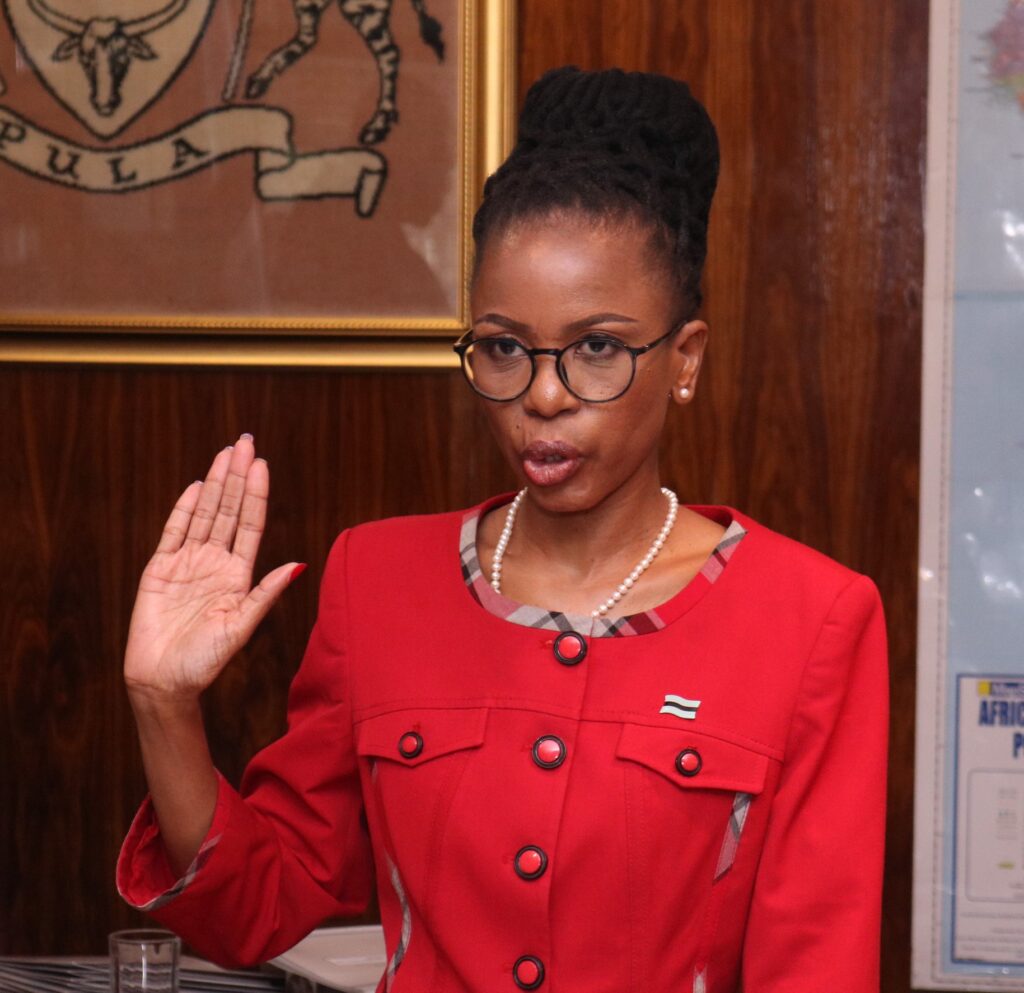Botswana’s Minister of Finance, Peggy Onkutule Serame, has been named the winner of the Finance Minister of the Year for Africa award for 2024 by The Banker, the globally recognised banking and finance publication. This recognition is well-deserved, as it recognises her excellent stewardship of the Botswana economy.

According to the International Monetary Fund, Botswana achieved 6.3% economic growth in 2022, while many economies in Sub-Saharan Africa averaged approximately 4%.
The government’s strategy to diversify and invest in infrastructural development, along with a commitment to fiscal adjustments, has paid off. The government is implementing its transitional development plan, prioritising boosting export-led growth, attracting foreign direct investment, and supporting the private sector through business environment reforms and value-chain development.
As a good governance practitioner, I acknowledge where government leaders are pursuing government effectiveness. Kudos to the minister and the Botswana government!
However, I missed the broader aspect of what this means for the citizens of Botswana. In November, during his state-of-the-nation address, President Mokgweetsi Masisi said the new expansion efforts would “enable government to provide public goods and services, including infrastructure development, health, education, water and sanitation”.
Any economic growth must also be measured by how many more people’s lives are improved. If this stewardship and economic growth have improved the lives of ordinary people and small businesses in Botswana, there’s even more reason to celebrate this win.
Less reliance on mining
The Banker article notes that the additional spending committed to infrastructure is a bid to lessen the country’s reliance on mining revenues, adding that the fiscal adjustments in 2024/25 were in line with the priorities of the second transitional national development plan, agreed in January 2023.
“Priorities of the plan include boosting export-led growth, attracting foreign direct investment, and supporting the private sector through business environment reforms and value-chain development. Such initiatives are geared towards helping the economy achieve high-income status by 2036,” the report said.
Ms Serame told The Banker, “This process requires, among others, a strong and resilient financial sector with adequate buffers to withstand emerging and systematic risks. To support this, we have embarked on a wide range of reforms, including legislative reforms (such as the Retirement Funds Act, Transfer Duty Act, and the ongoing review of the Public Finance Management Act, and holistic review of all taxes), and administrative reforms like the rationalisation of government machinery aimed at improving efficiency in the public sector and reducing duplication of efforts while optimising value for public monies as well as the adoption of new project prioritisation, preparation, and implementation.”
Beyond her stewardship of the public finances, Ms Serame stressed the need at COP28 in the UAE for climate-resilient infrastructure, appealing along with fellow ministers from Africa and elsewhere for support from developed nations via the loss and damage fund.
In this vein, it’s worth mentioning that Botswana has committed to reducing its overall carbon emissions by 15% by 2030. For more on the challenges of fulfilling this commitment, especially in the face of China’s coal-mining aspirations on the continent, read GGA’s article by Leleti Maluleke.
About Peggy Onkutlwile Serame
Peggy Onkutlwile Serame became the Minister of Finance and Economic Development on April 16, 2021. Before that, she was the Minister of Investment, Trade and Industry from November 6, 2019, to April 16, 2021. Just before this, she briefly acted as the Deputy Permanent Secretary to the President, from September to November 2019. Her role before joining the ministerial ranks was as the top official, or Permanent Secretary, in the Ministry of Investment, Trade and Industry, a position she held since January 2015.
Peggy started her public service career as an economist in the Ministry of Finance and Development Planning, right after she graduated. Over the years, she’s worked in several key areas, including as a Director for Macroeconomic Policy, where she was responsible for overseeing national development plans and conducting important economic studies and research.
She’s also been a member of the boards for various organisations, such as SPEDU, the Botswana Bureau of Standards, Botswana Privatisation Asset Holdings, the Citizen Entrepreneurial Development Agency Venture Capital Fund, Botswana Investment and Trade Centre, Botswana Development Corporation, and the Special Economic Zones Authority.
With a Master’s and a Bachelor’s degree in Economics and Statistics from the University of Botswana, Peggy is a trained economist. Her ambition is to make a meaningful impact on the growth and change of Botswana’s economy to improve the lives of its people.

Patrick Kulati
Patrick Lonwabo Kulati is a successful CEO renowned for his leadership in international NGOs across South Africa and Africa. He specialises in strategic leadership, change management, stakeholder relations, and governance. As a trained integral coach and facilitator, Patrick empowers leaders and organisations for success, offering expertise in profitability, resilience, and navigating challenges. An accomplished speaker and published author of A Gap in the Cloud, he shares insights on leadership, personal development, and strategy execution at various global events. In 2002, he was selected as part of a crop of young leaders to develop Mt Fleur Scenarios, known as SA 2020 Scenarios, under the auspices of the African Leadership Institute, the United Nations Development Programme, and the University of the Western Cape.


